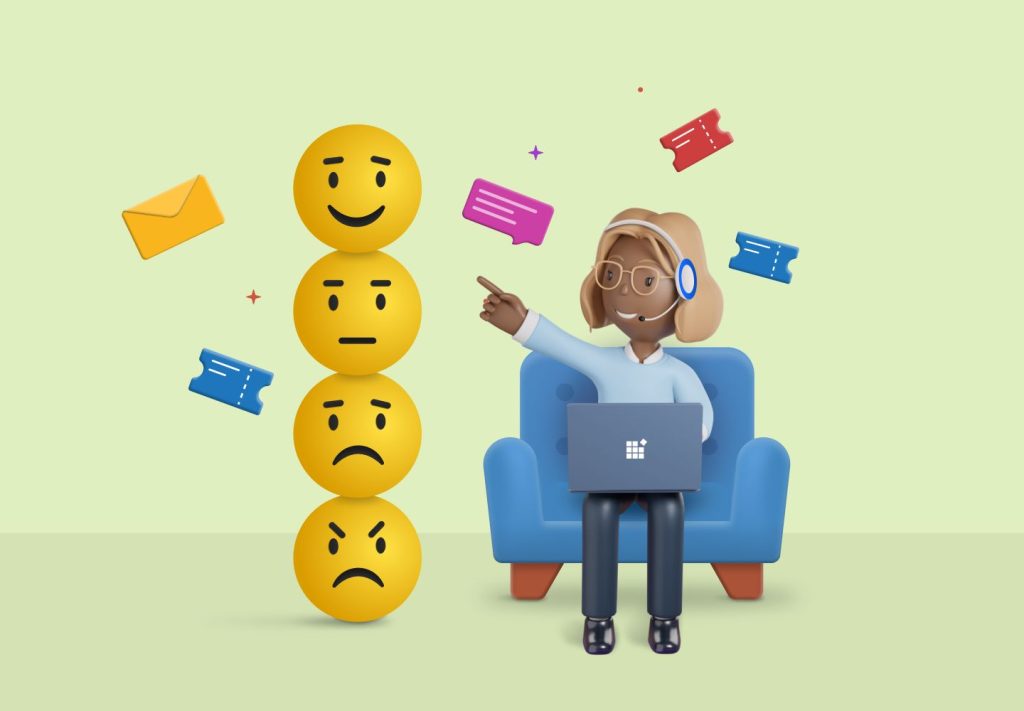
Hotels today strive harder than ever to constantly improve themselves and impress their guests with the best service.
They leverage every aspect of their reach that could help them enhance their guest experience.
The hotels continuously develop not only to draw more revenue but also to provide their guests with the most comfortable stay on their property.
Modern hotels have understood the importance of guest complaints to identify their pain points and the areas that require improvements.
Complaints if addressed, resolved, and analyzed properly are the gifts to hotels to improve their service and win their guest’s trust in providing the best service.
For instance, if a guest complains about malfunctioning equipment, and the hotel promptly addresses the issue by providing the guest with new or properly functioning equipment, the guest will not experience any discomfort because the problem was resolved quickly and effectively.
This provides the hotel with the opportunity to convert a negative experience into a positive one.
However, the hotel should not repeat the same complaints always which will result in creating a bad impression on the guests about the hotel.
Hotels can avoid repeating the complaints by leveraging the complaint management data generated by the complaint management software used in their hotel.
What Is Guest Complaint Data?
Guest complaint data is the analysis of the complaints raised by guests in the hotel, which is recorded in the hotel’s complaint and request management software.
Hotels these days mostly use software to manage guest complaints and requests, so it is very important to purchase software that has clear and detailed reporting options available, like Geedesk.
An efficient guest complaint and request management software should capture the nature of the complaints, the timing, and the frequency, along with guest details.
Properly generated guest complaint data can shed light on areas for hotel improvements.
Importance of Guest Complaint Data

Having many other types of data available, the question of why we should also collect guest complaint data arises.
Guest complaint data is like a goldmine for identifying the service gaps.
It directly highlights the weaknesses of the hotels and also the expectations of the guests that the hotels fail to meet.
For example, if a majority of the guests’ requests or complaints about the non-availability of room fresheners in the rooms then it directly highlights the missing amenities in the room that are expected by a majority of the guests.
Without analyzing the guest complaint data the hotel can never comprehend the guests’ expectations during their stay or let’s say the need for room fresheners in the room in our scenario.
It also highlights recurring issues, uncovering trends that might not be immediately apparent.
Real-time Usage of the Complaint Data In Improving The Guest Service
Let’s delve deeper into how guest complaint data can be used to improve guest service.
1. Identifying Recurring Issues
Every hotel aims to satisfy their guests and relying on the complaint data helps them to eliminate the discomfort even before it is faced by another guest.
“Research shows that 77% of travelers say room cleanliness is the most important factor in their hotel choice .”
Source: Internet
The hotels can achieve this by identifying the recurring complaints logged in the software.
The complaints with the highest frequency are called recurring complaints.
These recurring complaints directly point out the weaknesses of the hotel or the expectations of most guests on something.
For example, if 40% of complaints pertain to slow Wi-Fi, it becomes clear where immediate improvements are needed. Addressing these frequent issues can significantly enhance the guest experience.
Real-Life Examples:
Guests at a resort frequently complained about outdated gym equipment.
Using this data, management prioritized upgrading the gym, resulting in a 15% increase in positive reviews mentioning the fitness facilities.
2. Enhancing Staff Training
Guest complaint data is a powerful tool for improving staff training in hotels.
“Studies indicate that 89% of customers who experience poor service will switch to a competitor.”
Source: Internet
By systematically analyzing feedback, management can pinpoint specific areas where employees may be underperforming or lacking the necessary skills.
There may be situations where staff require specific training in some fields which may vary based on the locations or many such factors.
For example, suppose a significant number of complaints highlight issues with the front desk staff’s friendliness and efficiency. In that case, it becomes evident that targeted training is required in customer service and communication skills.
Real-Life Examples:
A luxury hotel noticed a pattern in complaints about delayed room service.
The hotel then analyzed the data and discovered peak times when the kitchen became overwhelmed.
By adjusting staffing levels and streamlining the room service process during these periods, the hotel reduced complaints by 30% and improved guest satisfaction.
3. Data-Driven Decision Making

Guest complaint data is invaluable for making data-driven decisions in hotels.
By analyzing trends and patterns in guest complaints, management can identify systemic issues and areas requiring improvement.
The decisions based on data directly emphasize the need for management to make the decision.
For example, if data reveals frequent complaints about the quality of breakfast options, the hotel can make informed decisions about revising its menu or sourcing higher-quality options.
Real-Life Examples:
A real-life scenario illustrating this comes from a mid-sized hotel that noticed a surge in complaints regarding the noise levels in certain rooms.
By mapping these complaints, management discovered that rooms facing the main street were particularly problematic.
Armed with this insight, the hotel decided to invest in soundproof windows for these rooms.
Post-implementation, the hotel saw a significant reduction in noise-related complaints and an increase in positive reviews mentioning the quietness of the rooms.
4. Upgrading Amenities
Guest complaint data is very useful for making data-driven decisions regarding the update of hotel amenities.
By analyzing the data, hotels can identify which amenities are falling short of guest expectations and prioritize improvements accordingly.
For instance, if a significant number of complaints mention outdated gym equipment, this signals a need for an upgrade.
“Research shows that 85% of travelers consider upgraded amenitites crucial for a positive hotel experience.”adva
Source: Internet
Real-Life Examples:
A practical example comes from a boutique hotel that consistently received complaints about its fitness center.
They replaced old equipment with state-of-the-art machines and added new facilities such as a yoga studio.
Following these updates, the hotel experienced a 25% increase in positive reviews, specifically highlighting the enhanced fitness amenities.
Advantages Of Using Guest Complaint Data
Improved Guest Satisfaction
Addressing complaints demonstrates to guests that their complaint is valued, enhancing their overall satisfaction and loyalty.
When guests see their issues being resolved, it builds trust and encourages positive reviews and repeat visits.
Operational Efficiency
Identifying and resolving systemic issues streamlines operations, reducing the likelihood of recurring problems and improving efficiency.
This leads to smoother daily operations, better resource allocation, and a more effective response to guest needs.
Competitive Advantage
Hotels that effectively leverage guest complaint data can differentiate themselves by consistently delivering high-quality service, gaining a competitive edge in the market.
By proactively addressing guest concerns, these hotels can build a reputation for excellence.
Enhanced Staff Performance
Guest complaint data highlights specific areas where staff performance may be lacking.
By using this information, hotels can develop targeted training programs to improve employee skills and behaviors. This results in better guest interactions and a higher standard of service.
Informed Decision-Making
Analyzing complaint data provides valuable insights that inform strategic decisions, such as where to invest in upgrades or which services to enhance.
This data-driven approach allows us to allocate resources efficiently and effectively, addressing the most critical areas for improvement.
Conclusion
Harnessing guest complaint data is not just about addressing issues; it’s about transforming your hotel into an example of exceptional service.
Each complaint is an opportunity to learn and improve, ultimately leading to increased guest satisfaction, loyalty, and a stronger competitive position in the market.
This proactive approach not only rectifies current issues but also prevents future ones, creating a seamless and enjoyable experience for every guest.
Embrace guest complaint data as a critical tool in your service improvement strategy, and watch as your hotel’s reputation for excellence grows, along with your business success.